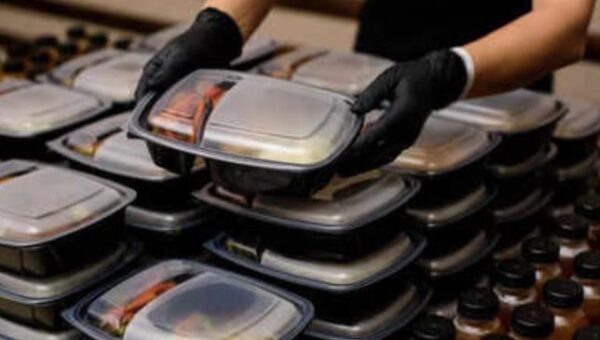Lifestyle
This is why plastic tiffins should be thrown away from the kitchen

In recent years, the conversation around the use of plastic products, particularly in the kitchen, has intensified.
Plastic tiffins, commonly used for storing and transporting food, have come under scrutiny due to their potential health and environmental impacts.
Here are several compelling reasons why you should consider replacing plastic tiffins with safer alternatives.
1. Health risks from chemical leaching
Plastic tiffins can leach harmful chemicals into food, especially when exposed to heat. Many plastic containers contain Bisphenol A (BPA) and phthalates, chemicals that can disrupt endocrine function. Studies have linked these substances to a variety of health issues, including hormonal imbalances, reproductive problems, and increased risk of cancers. When plastic tiffins are used to store hot food or are heated in the microwave, the risk of chemical leaching increases significantly.
1. Impact on food quality
Plastic containers can affect the taste and smell of food. Certain plastics can absorb odors and stains from the food they store, which can then transfer to other foods. This not only diminishes the quality of your meals but can also lead to food waste as items stored in such containers become less appetizing.
2. Environmental concerns
Plastic pollution is a significant environmental issue. Plastic tiffins contribute to the growing problem of plastic waste, which often ends up in landfills or, worse, the ocean. These materials can take hundreds of years to decompose, during which time they can harm wildlife and ecosystems. By switching to more sustainable alternatives, such as stainless steel or glass containers, you can reduce your environmental footprint.
3. Durability and longevity
Plastic tiffins tend to wear out faster than their metal or glass counterparts. They can crack, warp, and stain over time, especially when used frequently. Stainless steel and glass tiffins are much more durable and can last for many years without degrading, providing better value for money in the long run.
4. Temperature sensitivity
Plastic is not the best material for temperature retention. It doesn’t keep food hot or cold for very long, making it less ideal for transporting meals. Stainless steel tiffins, on the other hand, are excellent at maintaining the temperature of your food, whether you want to keep it warm or cool.
5. Hygiene issues
Plastic tiffins can be harder to clean thoroughly. They can retain grease and food particles in scratches and grooves, which can become breeding grounds for bacteria. Glass and stainless steel containers are non-porous and much easier to sanitize, ensuring that your food remains safe and hygienic.
6. Microwave safety
Not all plastic tiffins are microwave-safe, and even those labeled as such can pose risks. Heating plastic in the microwave can cause it to release harmful chemicals into your food. Glass and ceramic containers are far safer options for microwave use, as they do not leach chemicals and can withstand high temperatures.
7. Chemical-free options
Choosing alternatives like stainless steel, glass, or ceramic ensures that your food is stored in a completely non-toxic environment. These materials do not contain harmful chemicals and are safe for long-term food storage.
8. Aesthetic appeal
Glass and stainless steel containers often have a more appealing look and feel compared to plastic. They add a touch of elegance to your kitchen and dining experience, making your meals more enjoyable.
9. Supporting sustainable practices
By choosing to eliminate plastic tiffins from your kitchen, you are making a conscious decision to support sustainability and reduce plastic waste. This small change can contribute to a larger impact on the environment and encourage others to follow suit.
Replacing plastic tiffins with safer, more sustainable alternatives can significantly benefit your health, enhance food quality, and protect the environment. It’s a simple yet effective step toward a healthier lifestyle and a cleaner planet.






